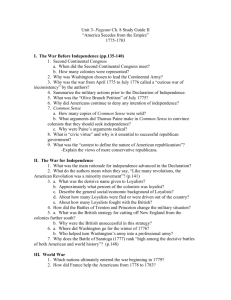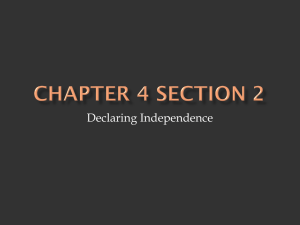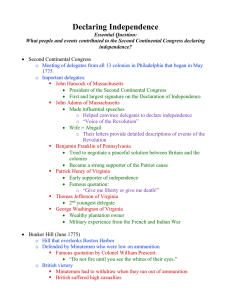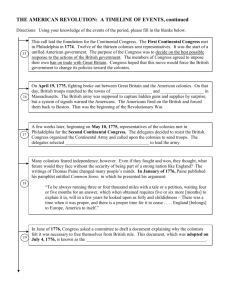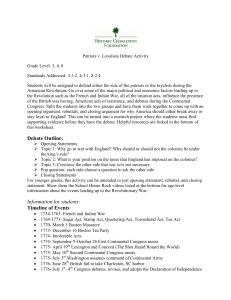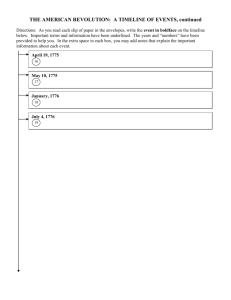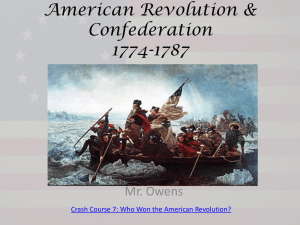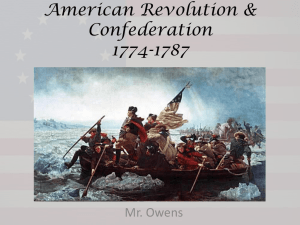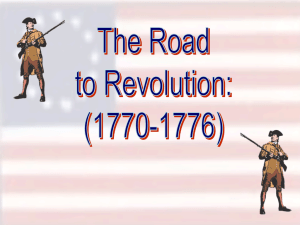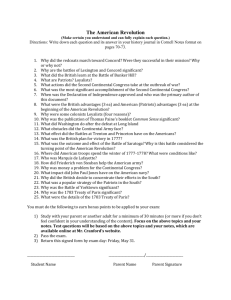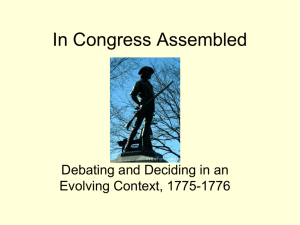Ch 4.2 Ideas Help Start a Revolution
advertisement
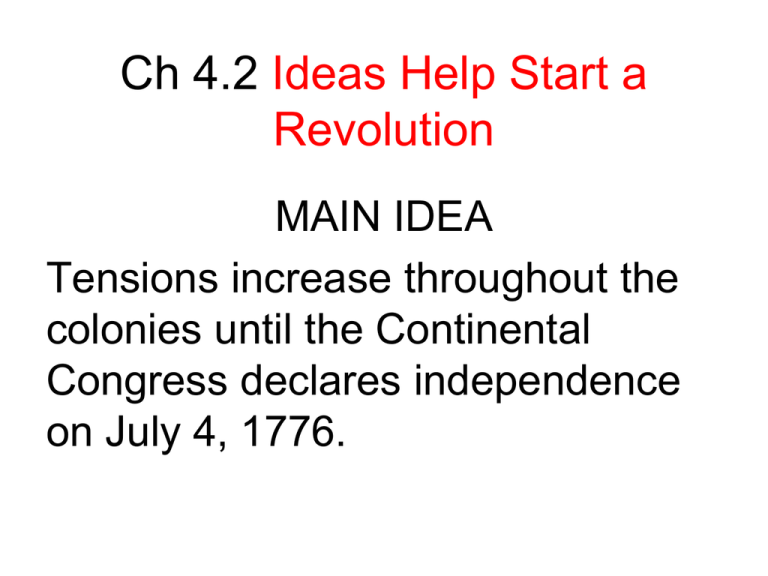
Ch 4.2 Ideas Help Start a Revolution MAIN IDEA Tensions increase throughout the colonies until the Continental Congress declares independence on July 4, 1776. WHY IT MATTERS NOW The United States was founded at this time. Second Continental Congress • May-June 1775 in Philadelphia debated • Loyalists -Loyalties to the king -Reconciliation with British crown -Can’t win • Patriots -Independence • Colonial militia= Continental Army -George Washington appointed commander of the army Battle of Bunker Hill • June 17, 1775. • Actually at Breed’s Hill, north of Boston. • Bloodiest battle of the war. • Over 1000 redcoats killed, patriot loss. Olive Branch Petition • Second Continental Congress, July 1775 • formal harmony between Britain and colonies. • King George rejects it. -stated colonies were rebels and urged Parliament to order naval blockade of American coast. Declaring Independence (influences) • English Magna Carta, 1215 -Can’t seize property, no taxation without representation, jury trial. • English Bill of Rights, 1686 -constitutional monarchy -representation through a parliament (Lower House) John Locke • Enlightenment thinkers. • Two Treatises of Government, 1690 -Natural rights to life, liberty, and property -Social contract, agreement people consent to choose and obey a government that protected natural rights. -If that government didn’t, that the people had a right to resist and overthrown that government. Thomas Paine’s Common Sense, 1776 • Create a better society one free of tyranny, with equal social and economic opportunities for all. • Importance of republican government. -power is given to leaders, but power can be taken away. Declaring Independence • Congress -Each colony is to form own gov. -Committee to prepare a formal statement of separation. -Thomas Jefferson chosen to write it. Declaration of Independence, 1776 • “We hold these truths to be self-evident, that all men are created equal, that they are endowed by their Creator with unalienable rights, that among them these are Life, Liberty, and the pursuit of Happiness;…” - “self-evident”, to be understood without proof - “all men are created equal”, free citizens are political equals -did not include women, Native Americans, slaves -cruel and injustice of slave trade -S. Carolina and Georgia, take it out or we will not vote for it - “unalienable rights", could not be taken away Loyalists and Patriots • Groups divided: Quakers and African American on both sides. • Native Americans support British. -Colonists threaten their lands.

